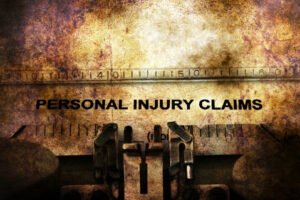Florida Premises Liability 101

If you are injured in your own home, very often you have no one to blame but yourself. If you are injured on someone else’s property, however, it may be possible for you to seek compensation if their negligence caused your harm. This theory is called premises liability, and Florida’s law of premises liability can be complex to navigate alone. Having an experienced attorney on your side can help smooth out the process.
Three Categories
Florida law recognizes three different types of visitors to another person’s land, and the level of care you are owed in terms of making the property safe depends on which category you are held to belong to. The categories are:
- These people are owed the highest degree of care in terms of making and keeping the property safe for them – property owners must make their home or business as safe as possible, and warn invitees of the dangers they know of (or should know of). Examples of invitees include customers in a retail establishment or invited guests into someone’s home.
- Licensees are the middle group of visitors, owed more reasonable care than trespassers and less than invitees. Licensees enter onto property for their own business, and are owed enough care to not intentionally be exposed to danger or be maliciously harmed. A licensee would be a door-to-door salesman, or a neighbor child looking to retrieve a ball thrown over a fence.
- Trespassers are fairly self-explanatory; they have no right to be on the property, and are only owed the minimum duty of care, which is for the property owner to refrain from willfully or maliciously injuring them.
Invitees are sometimes divided into two subcategories – business invitees, who are on the property for some business connected with the owner, and public invitees, who are on the property for some reason that involves the land being open to the public. However, both subcategories are owed the same duty of care.
Foreseeability Is Key
Florida’s premises liability law is based in the legal theory of negligence, meaning that three criteria must be established by the plaintiff in court before they can prevail against the defendant. Jurisprudence establishes that a property owner owes a duty to exercise a certain level of care toward entrants on their property – you must show that the duty was breached, and that it was specifically breached by the defendant’s conduct (or lack thereof). In other words, no other superseding cause can be in evidence. You must also be able to show that you suffered tangible harm, and not just temporary cuts and bruises or the like.
Be advised that when it comes to slip and fall accidents in retail establishments, Florida law is perhaps a bit more strict than other states’. Florida law looks at whether the accident was foreseeable, but it places the responsibility of proving foreseeability on the plaintiff, not on the defendant. In other words, instead of making the store prove that there was no danger, the plaintiff – who might only have been on the scene for mere minutes before the accident – must prove that there was danger, or they cannot mount a case. It is difficult, but not impossible – but having an experienced attorney to help you can make the process easier.
Call A Winter Park Premises Liability Attorney
Being injured on someone else’s property can be frightening, especially if the owner had a duty to ensure the home or business’s safety as much as possible. A Winter Park personal injury attorney can help answer any questions you might have about seeking compensation, and work hard to give you the chance to get your life back to normal. The Hornsby Law Group is happy to put our experience to work for you. Contact our offices today for a free consultation.
Resource:
leg.state.fl.us/Statutes/index.cfm?App_mode=Display_Statute&URL=0700-0799/0768/Sections/0768.0755.html
https://www.hornsbylawgroup.com/injured-children-premises-liability/